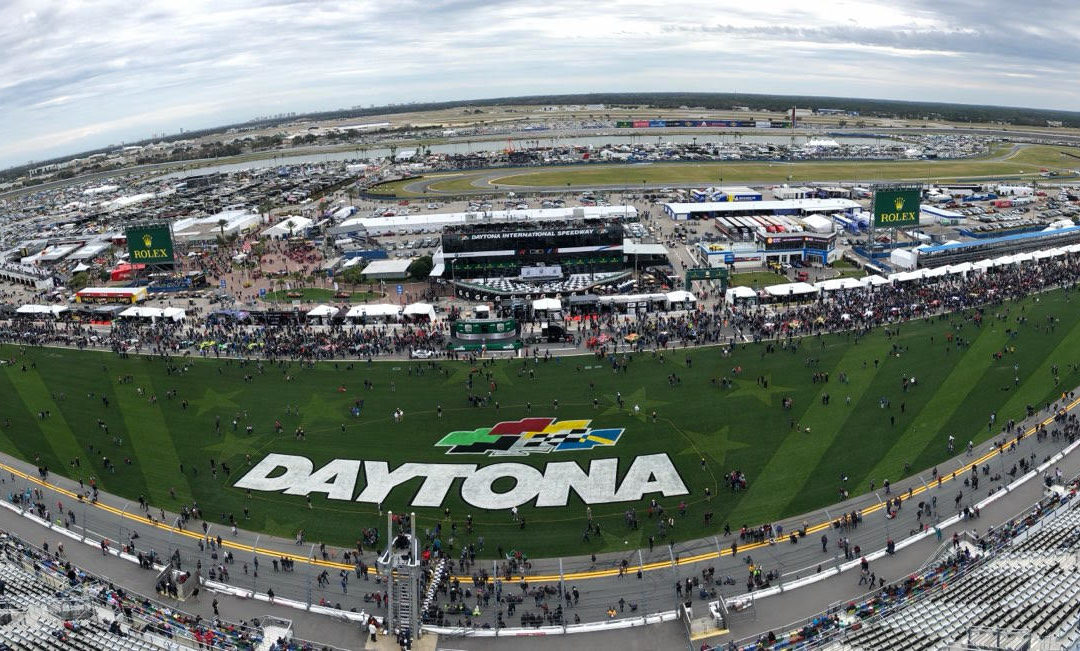Historically, a spotter has been synonymous with NASCAR: on those big oval tracks, a spotter can see the whole track, while the driver can’t see all that well in those big cars. Having “eyes in the sky” is a helpful way to give the driver information, including things like reporting an incident ahead and monitoring a pack of cars two or three wide.
The role of a spotter is now valued in other forms of motorsports, too, and it is especially useful in sports car racing. The Rolex 24, being at Daytona, lets the spotter see the whole track, and their role can be a critical one for the driver and team.
A spotter can be used in a number of ways. They can alert the driver to faster-class cars coming from behind (or how many of them there are), and their observations assist team strategy. For example, they can communicate whether an incident on the course looks like it might bring out a full-course yellow. Even seeing which teams are lined up on the wall preparing for a pit stop can be valuable information!
When I’m coaching, there are plenty of circuits where having an elevated view helps me observe and assist my clients. It also allows me to fill the role of a spotter, and I find that most of my clients really benefit from these additional resources, because it allows them to stay focused on what they are doing. It can also give them an advantage over their competitors.
If you have an extra radio handy at the track, something as simple as having your crew let you know the gap to the car ahead or behind can really help. Other things they can communicate include any on-track incidents or debris, flag situations, and other details. Weather reports are another important thing that a spotter can communicate!
If this is a new dynamic to your racing program, use your spotter during practice sessions and test days so you get used to it and perfect your communication techniques with each other. Obviously, the timing of the information is just as important as the information itself. You want a spotter to be a benefit, not a distraction!
From being on both sides of spotter communication, I can attest that having a spotter can be a huge advantage and a very rewarding addition to the team makeup.



